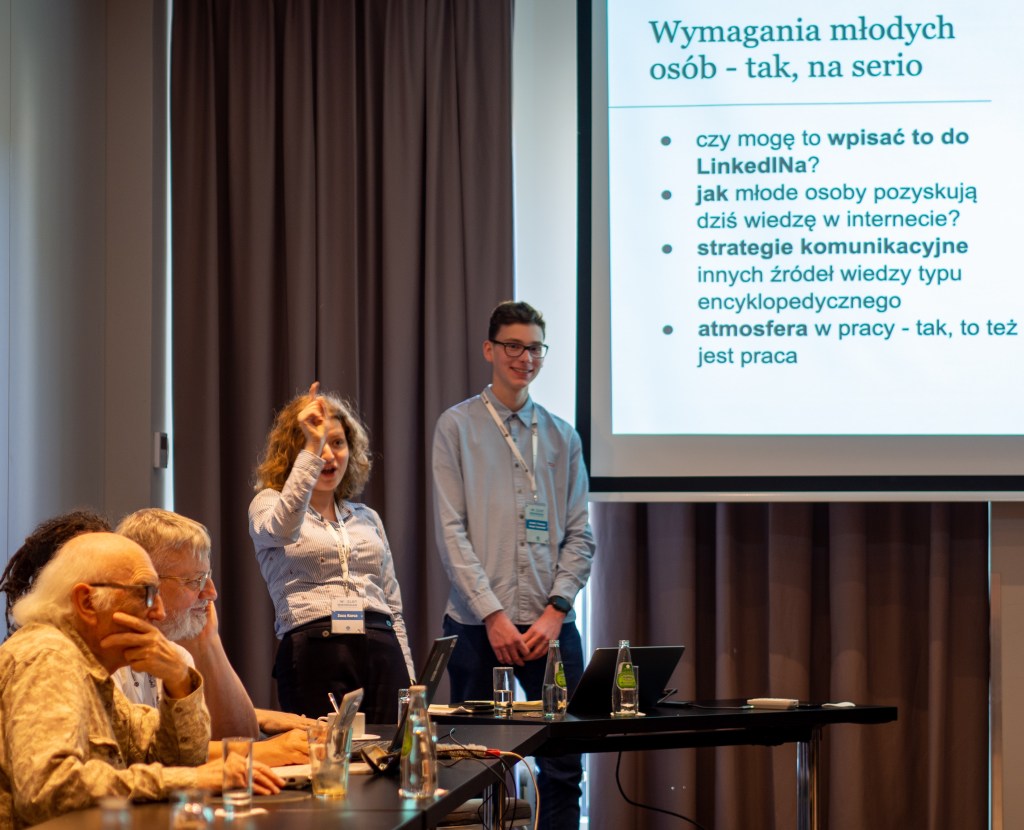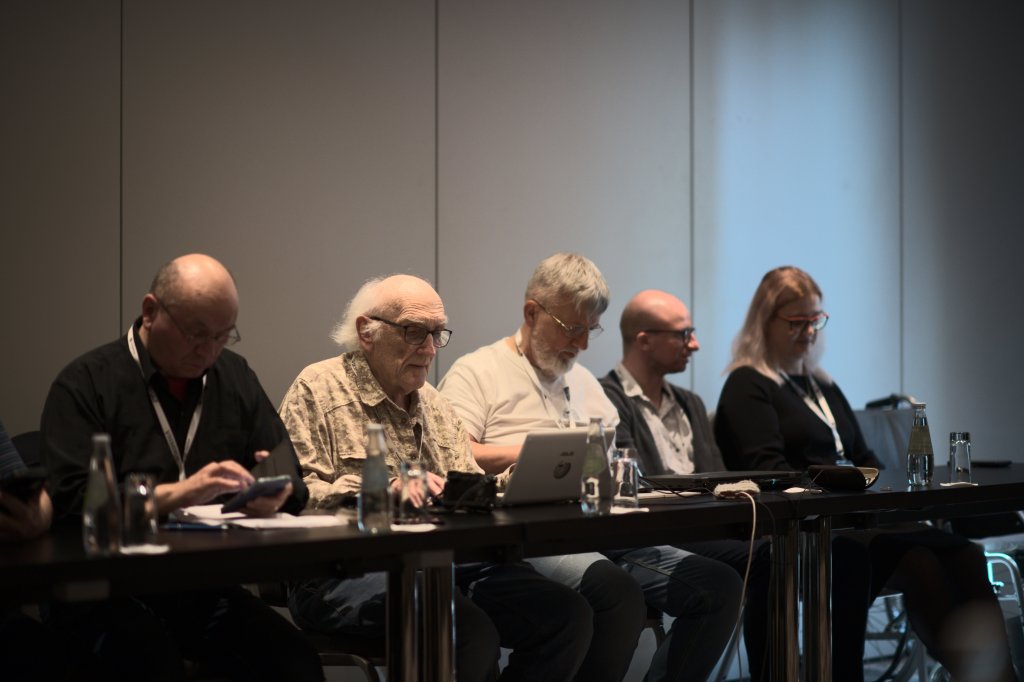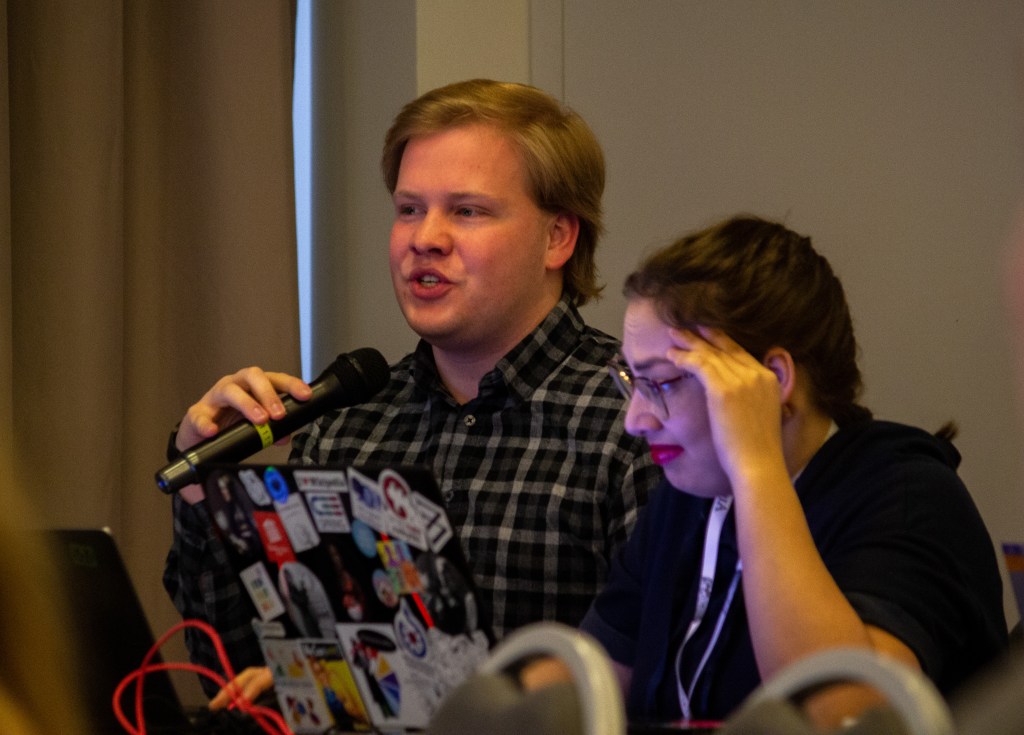This year’s (W)zlot – Spring Wikimedian Meet-up, the annual gathering of Wikipedia editors from all over Poland, was full of many interesting and thought-provoking lectures, panels and meetings. One of them, organized by Wikimedia Polska, was the session titled Youth and Wikimedia – why don’t young people get involved in co-creating our projects? led by Polish Wikipedia’s youngest administrator Kacper Szymański [16-year-old] and youth activist and researcher Zuza Karcz [21-year-old]. Kacper and Zuza faced Wikipedians with rich editing experience and spoke boldly about what discourages young people from getting involved in Wikimedia projects. Here’s their diagnose.
- Wikipedia doesn’t have a good reputation. As Zuza pointed out, there is still a strong belief that Wikipedia is a rather mediocre source of knowledge. School and university teachers often forbid their students to go to Wikipedia – they don’t consider it a reliable source of information. Wikimedia Polska is fighting this conviction through the activities of its education team, but, unfortunately, there’s still much to do to change people’s awareness in this dimension. Another stereotype, according to Kacper, concerns people who edit Wikipedia. They are seen as nerds with their noses in books (nothing wrong with that, the author of this article is a bookworm herself). Yet, the wiki community is much more diverse and it would be worthwhile to communicate this to the world and change the image of “The Wikipedian.” This leads us to another conclusion Kacper and Zuza proposed.
- Wikipedia is faceless. Our young experts say their peers assimilate information differently than older generations. Because they grew up in the era of social media they prefer a story told by a real person to dry facts. However, is this possible with Wikipedia? It turns out that yes, as exemplified by the encyclopedia Britannica’s account on TikTok which has more than 3 million followers. Young people are not only looking for knowledge on the Internet, but also for entertainment. Providing them with these both at the same time is like killing two birds with one stone (except that these birds are piñatas full of candy). This brings us to the next question. Do they think that getting involved in Wikimedia projects, not as readers but as editors, is a trick or treat? The next point answers this question.
- Editing Wikipedia and Wikimedia projects doesn’t give any benefits. Or so it seems. According to Zuza and Kacper, currently, young people often decide on a specific volunteering activity by looking at the profit a given organization offers. For pupils, extra points at school count, university students can settle student internships through volunteering, and for those who are already working, what matters is that they can record such activity on Linkedin or mention it in their resumes. Yet, as our research team reminds us, it’s not only about such benefits, but also about values. Young people are motivated by a sense of agency. They like to feel that what they do contributes to building a better world for everyone. And you know what? That is what Wikipedia is all about. Its very mission is included in the catchphrase: “Imagine a world where every person on the planet has access to the sum of human knowledge…” – implicitly be the one who makes it happen! We just need to admit it. Thus, what is missing is a proper narrative necessary to involve new young members so they can become a part of this unique community. Let’s tell them they matter, let’s show them how much we can achieve by working together.
We are happy to share our experiences with you. If you want to talk don’t hesitate to contact me directly: malgorzata.gramatnikowska@wikimedia.pl.

Can you help us translate this article?
In order for this article to reach as many people as possible we would like your help. Can you translate this article to get the message out?
Start translation


